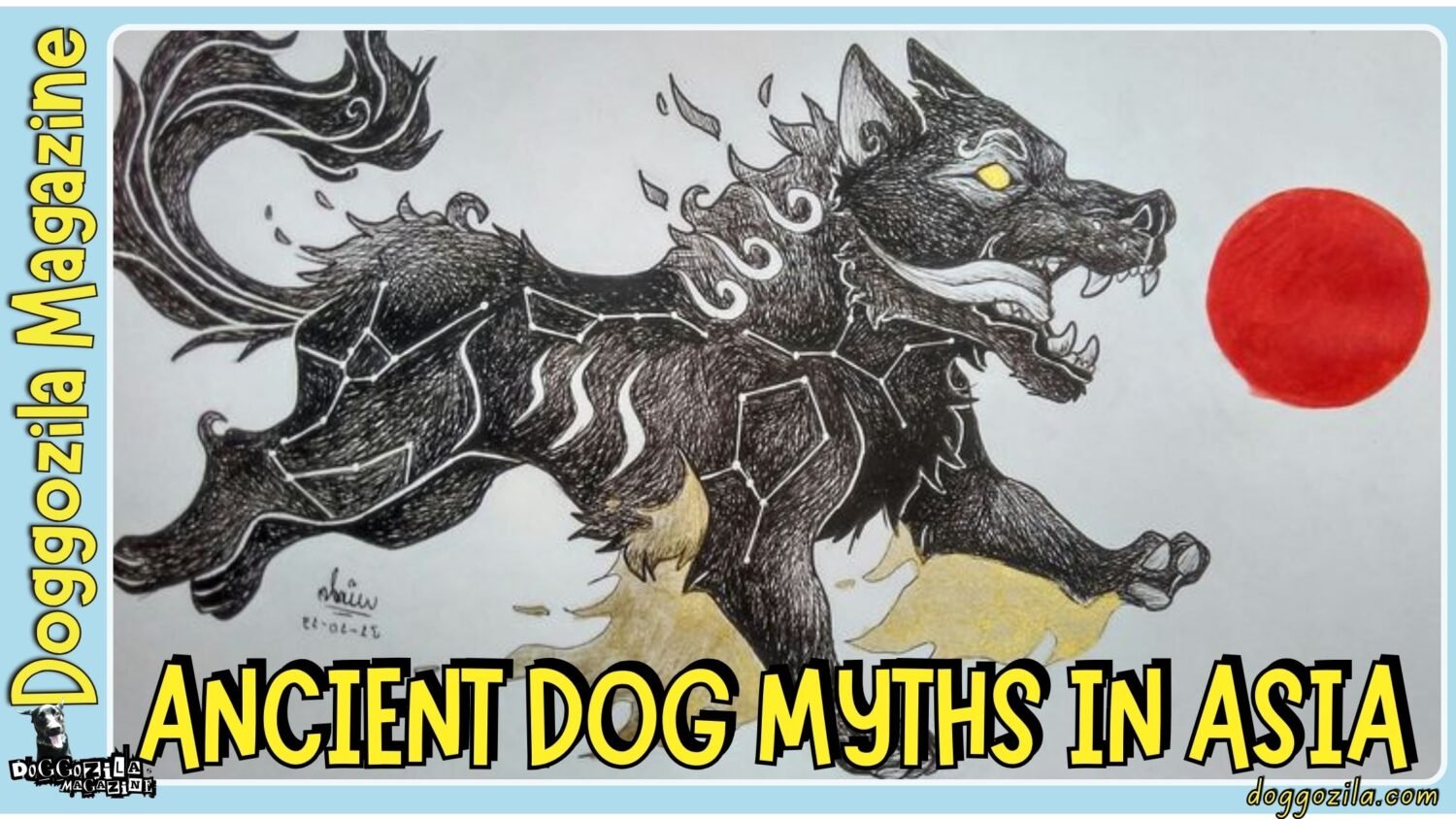
Long ago, Egypt was home to many dog breeds. These ancient Egyptian dogs lived through time and became the Egyptian breeds we have today. Some examples are the basenji, saluki, pharaoh hound, and Ibizan hound. Nearby countries like those in the Middle East, Mediterranean, and Africa also adopted and developed these original breeds.
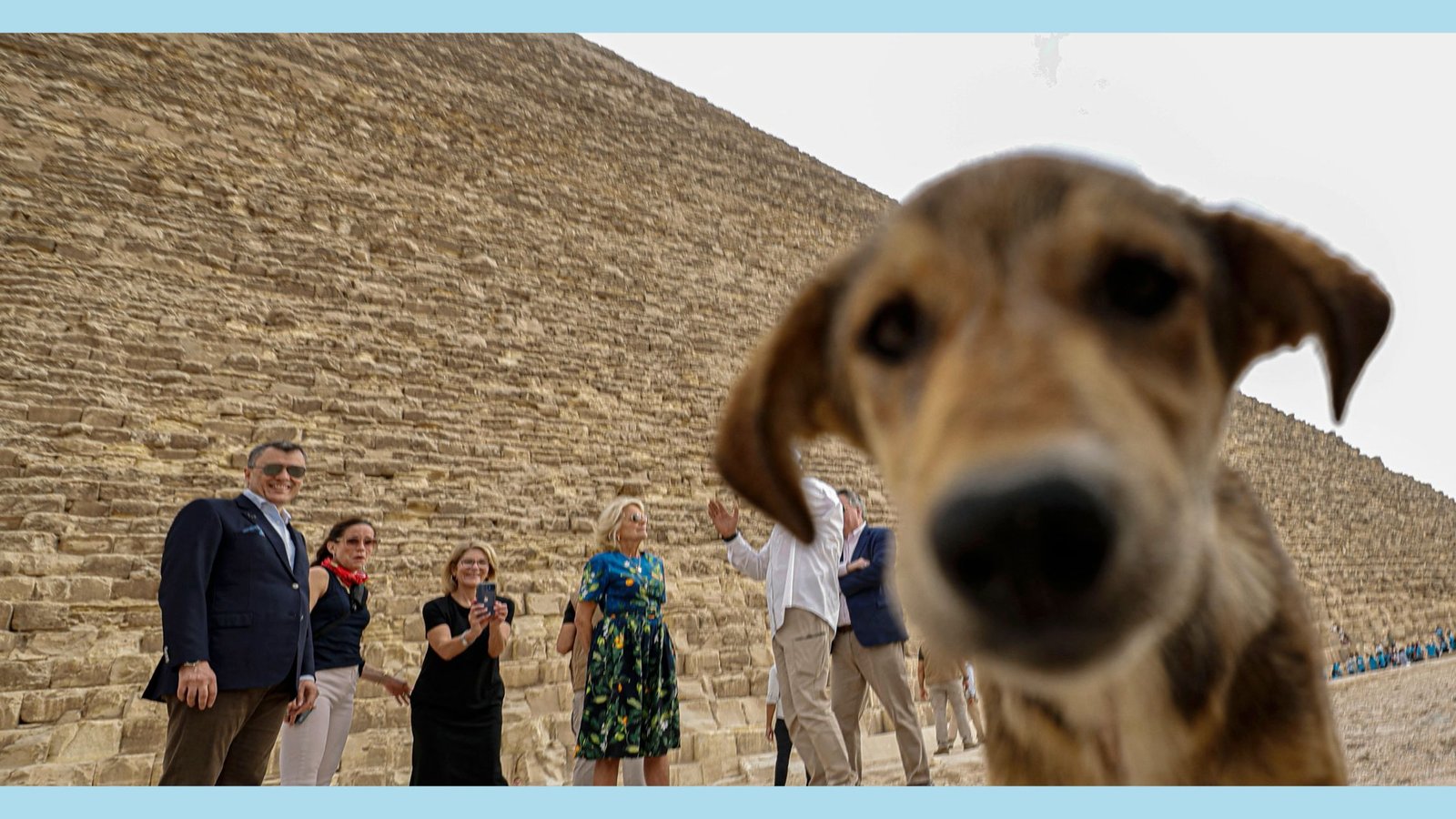
ANCIENT EGYPTIAN DOGS: GUARDIANS AND COMPANIONS
In ancient Egypt, dogs had an important role. They were loyal friends but also guards and hunters. Egyptians thought dogs could protect people. They connected dogs to Anubis, the god with a jackal head.
Dogs were even buried with their owners, showing how valued they were in the afterlife. These Egyptian dogs were smart, quick, and loyal. They could handle the harsh desert well. They were used for hunting, herding, and guarding. Over time, they developed unique traits that made them different from other breeds.
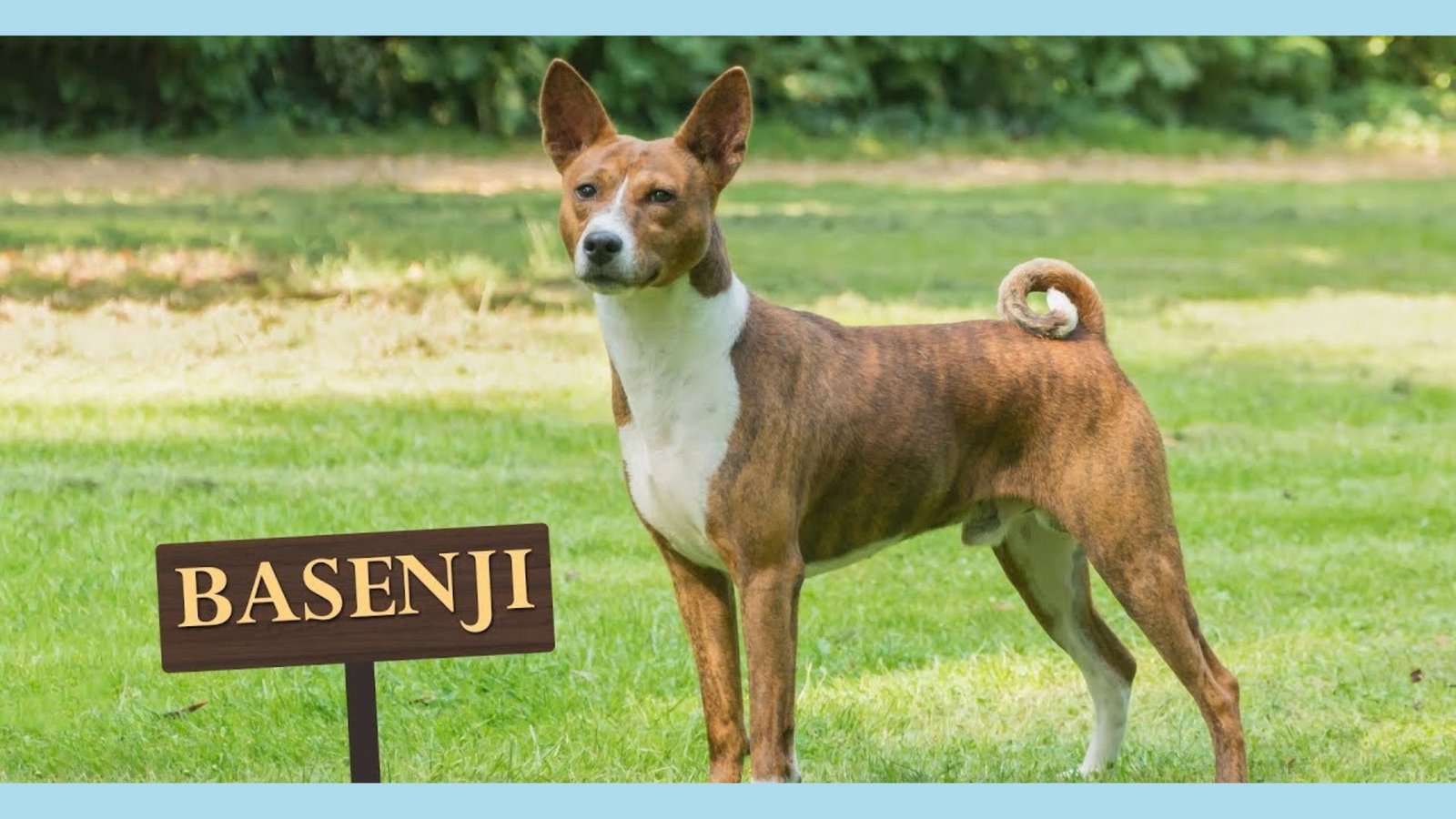
THE BASENJI: THE BARKLESS WONDER
The basenji is a well-known breed that started in ancient Egypt. This small to medium dog has special traits and vocalizations that make it popular.
Charming Ancient Egyptian Dogs
One cool thing about basenjis is that they don’t bark like other dogs. Instead of barking, they make a yodeling or howling sound. This earned them the nickname “barkless dog”. Ancient Egyptians bred basenjis for hunting. They wanted dogs that could stay quiet when tracking prey. Over many years, breeders kept choosing the quietest basenjis.
That’s why basenjis today don’t bark like other dog breeds. These ancient Egyptian dogs have survived and evolved into the native Egyptian breeds we know today. Basenjis have a sleek, muscular body that looks elegant. They are usually about 16 to 17 inches tall at the shoulder and weigh between 22 to 26 pounds.
Their short fur can be red, black, brindle, or tricolor. One thing that really stands out about basenjis is their pointed, upright ears that make them look alert and curious. Their eyes are almond-shaped and intelligent-looking. Basenjis also have cute, curly tails that add to their charm.
Basenji Temperament and Personality
Basenji dogs are smart and free-spirited. They tend to be distant with strangers but devoted to their owners. These dogs have a stubborn and self-reliant nature. Basenjis might not suit first-time dog owners due to their independent streak.
Early training and socialization shape them into well-mannered pets. Praise and rewards work better than harsh methods for this breed. Basenjis need mental and physical stimulation. Walks, puzzle toys, and playtime fulfill their urge to explore and hunt. Providing enrichment keeps them content.
Basenjis as Companions
Basenjis make rewarding companions for those who meet their unique needs. Their intelligence and independence create an engaging bond for active owners.
However, they may lack patience with young children’s roughhousing. With proper training, they can peacefully coexist with older kids and other pets.
Basenjis need a secure yard with a fence. They like chasing small animals. They are very clean and groom themselves often, similar to cats. Their short fur doesn’t require much grooming, so they are an easy breed to maintain.
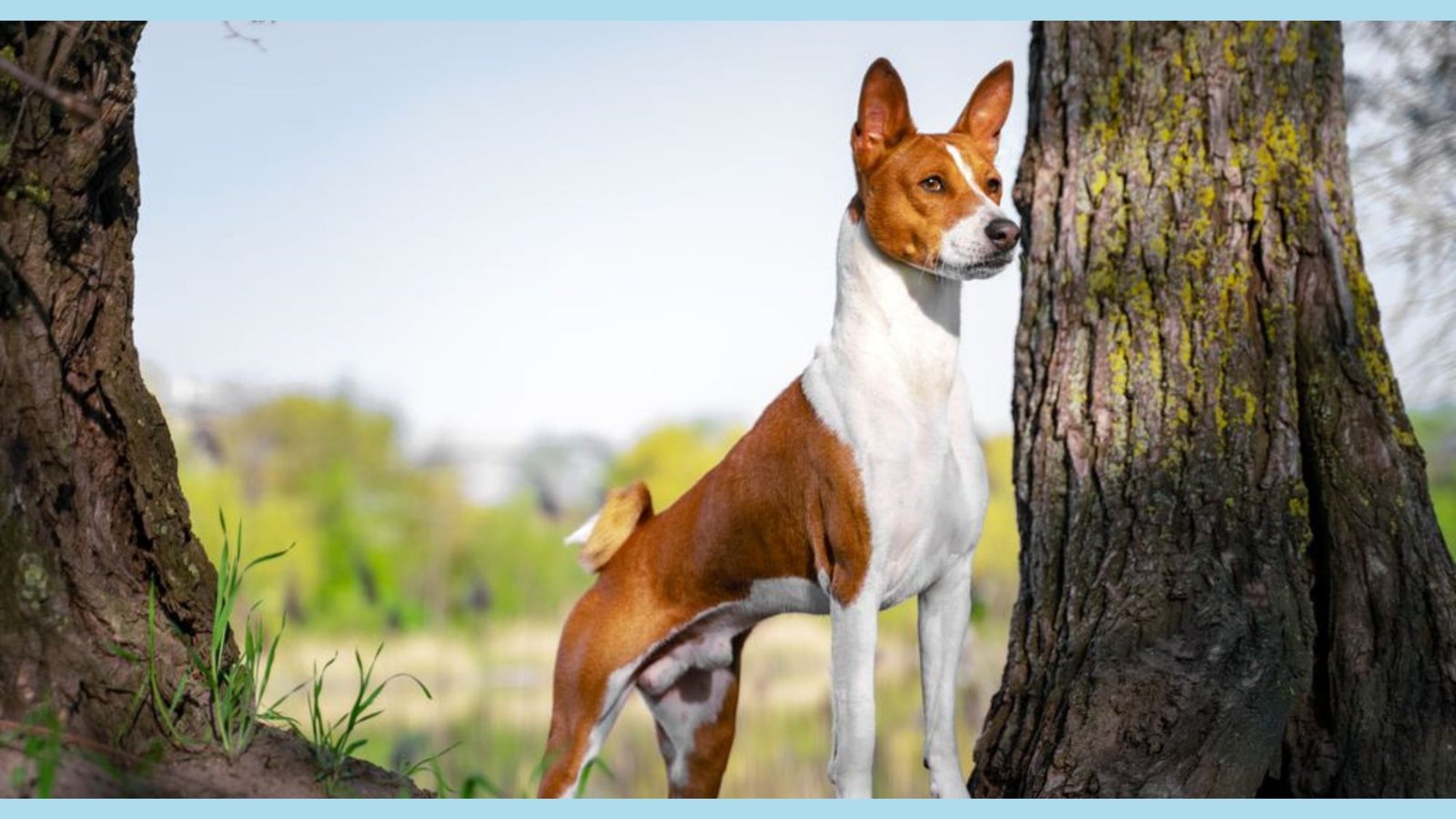
Basenji Health and Lifespan
Basenjis are generally healthy dogs. But like all breeds, they can have some health issues. It’s important to get a basenji from a reputable breeder who checks for health problems in their breeding dogs.
Some common health concerns in basenjis include:
- Fanconi Syndrome: a kidney disease
- Hip Dysplasia: a problem with the hip joints
- Progressive Retinal Atrophy: an eye disease that causes vision loss
- Thyroid Disorders: issues with the thyroid gland
With proper care, basenjis can live long, healthy lives. Their average lifespan is around 12 to 14 years. The basenji is a fascinating breed with a unique history. From ancient Egypt to its unusual “bark,” this dog continues to amaze dog lovers worldwide.
Basenjis may not suit everyone, but they make great companions for those who understand their independent nature. With training, socialization, and care, a basenji can become a cherished family member.
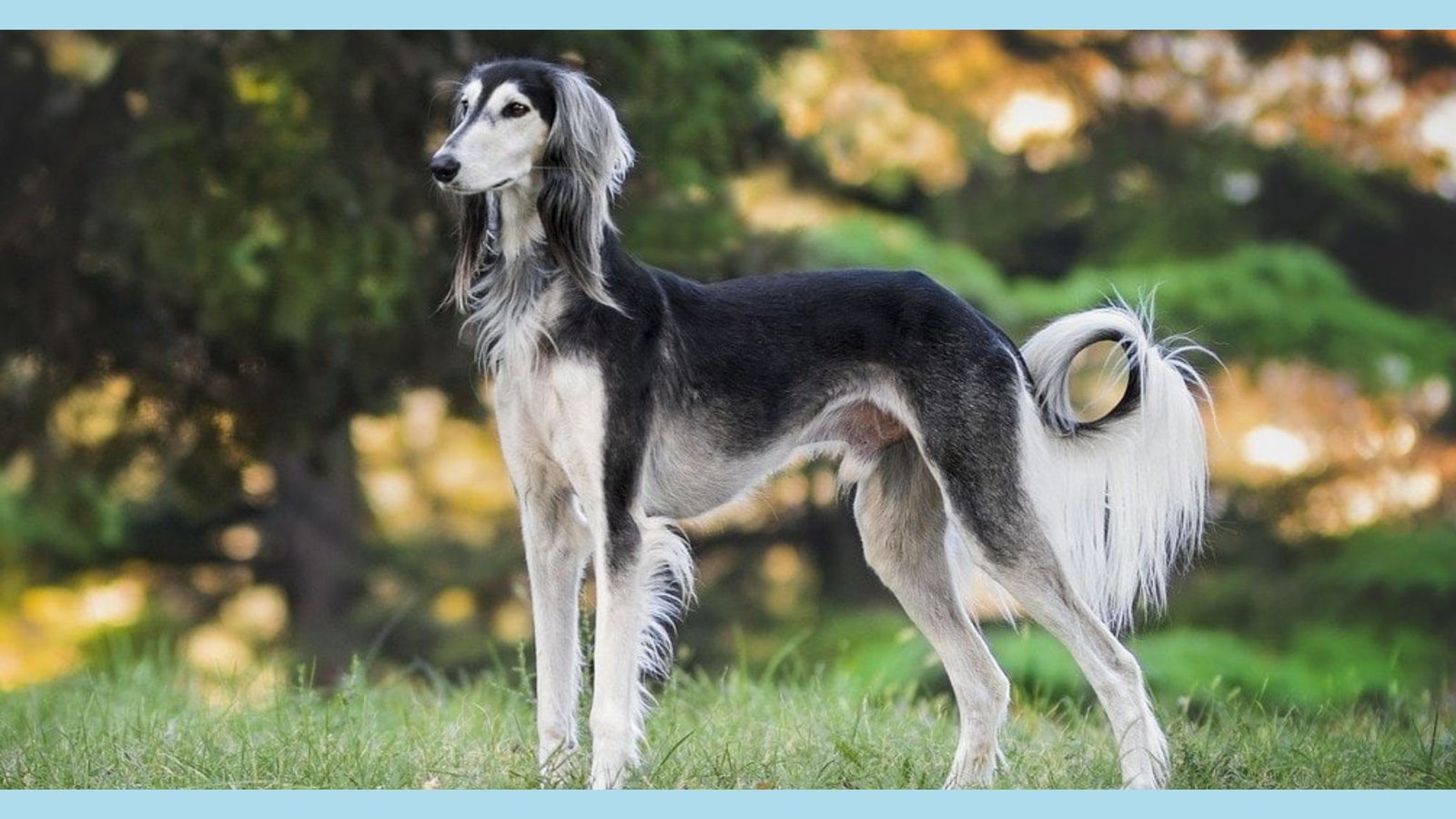
THE SALUKI: A GRACEFUL AND MAJESTIC BREED
The saluki, called “the royal dog of Egypt,” is a breed that moves with grace and elegance. These dogs have deep roots in ancient Egypt, where people greatly valued them and carved their images on tombs and sculptures.
Salukis are sighthounds, known for incredible speed and agility. They have a slim, athletic body, a long narrow head, and a smooth coat in many colors. Salukis are gentle and loving dogs, making them wonderful companions. But they have a strong desire to chase prey and need a secure fenced area to run and exercise. These ancient Egyptian dogs have survived to become the beloved native dog breeds we know today.
Skilled Hunters, Gentle Family Friends
A striking saluki feature is their long, floppy ears. These ears add beauty but also serve a purpose. They help funnel scents toward the dog’s nose, aiding in hunting. Salukis have an excellent sense of smell, which, along with their speed, makes them skilled hunters.
While expert hunters, salukis are gentle, loving dogs. They form deep bonds with owners and are known as loyal companions. Salukis are often called reserved and dignified, but also playful. They love family time and enjoy activities like agility training or lure coursing.
Salukis have a strong natural urge to chase prey like squirrels or rabbits. So, it is crucial to provide them with a secure, enclosed space to run and exercise. When taking them for walks, you must use a leash or fenced yard.
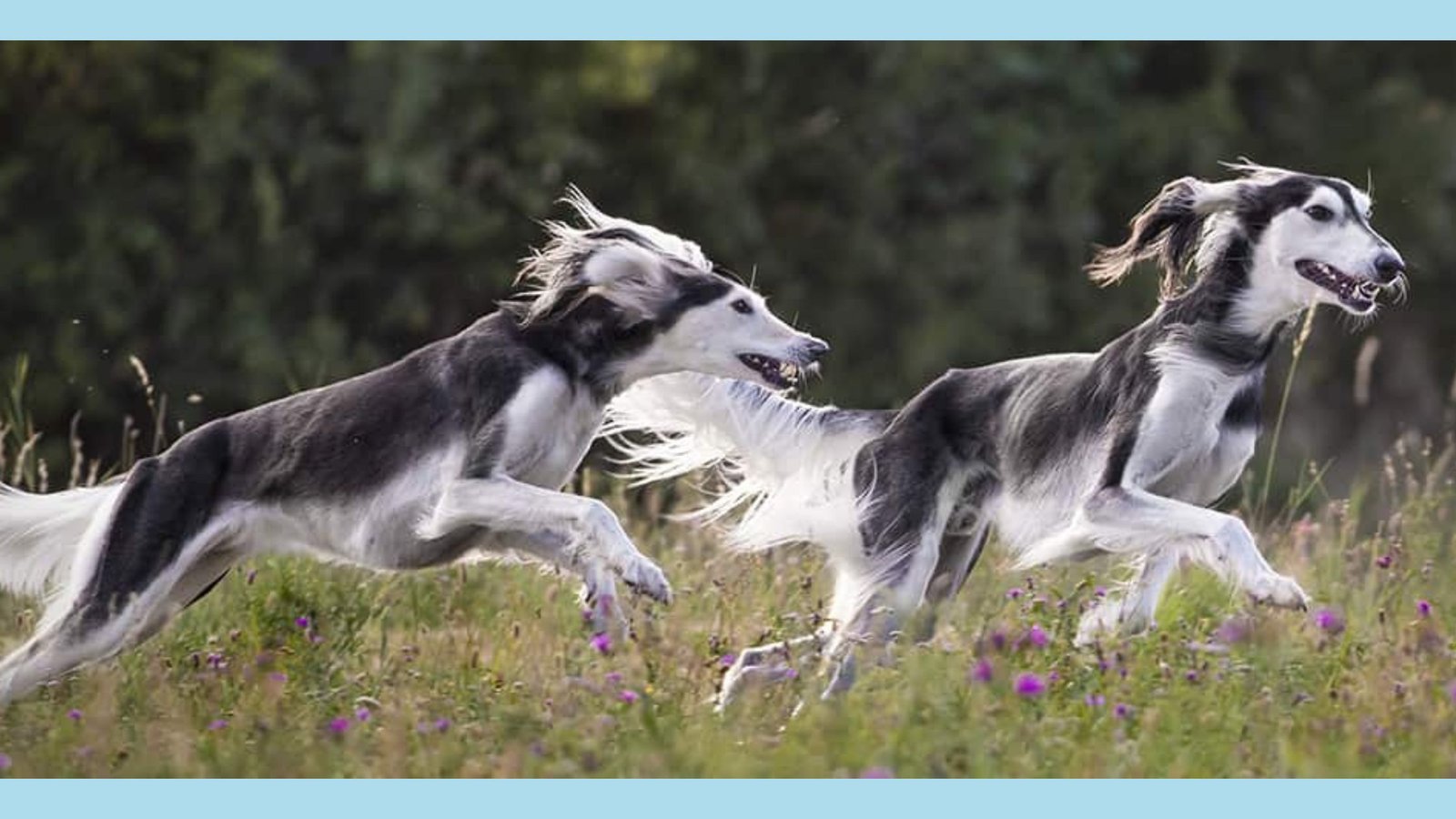
Low-Maintenance and Clean Coat
With proper socialization, Salukis generally get along well with kids and pets. However, their hunting instincts require supervision around smaller animals like cats or small dogs. Early training helps them interact better with people and animals.
Salukis have a low-maintenance, silky coat. Regular brushing prevents tangles and matting. They are relatively clean dogs without a strong odor. But like all dogs, they require regular bathing and nail trimming to look their best.
Royal Breed from Egypt
Salukis can develop certain health issues like hip dysplasia, heart problems, or cancer if not cared for properly. Routine vet visits and a nutritious diet are essential to keep them healthy and free from harmful dog diseases.
The saluki is a beautiful breed. It has grace and athleticism. The saluki is a great companion for people or families who can give it exercise and mental challenges. With its regal looks and gentle nature, it’s no surprise the saluki is called the “royal dog of Egypt.”
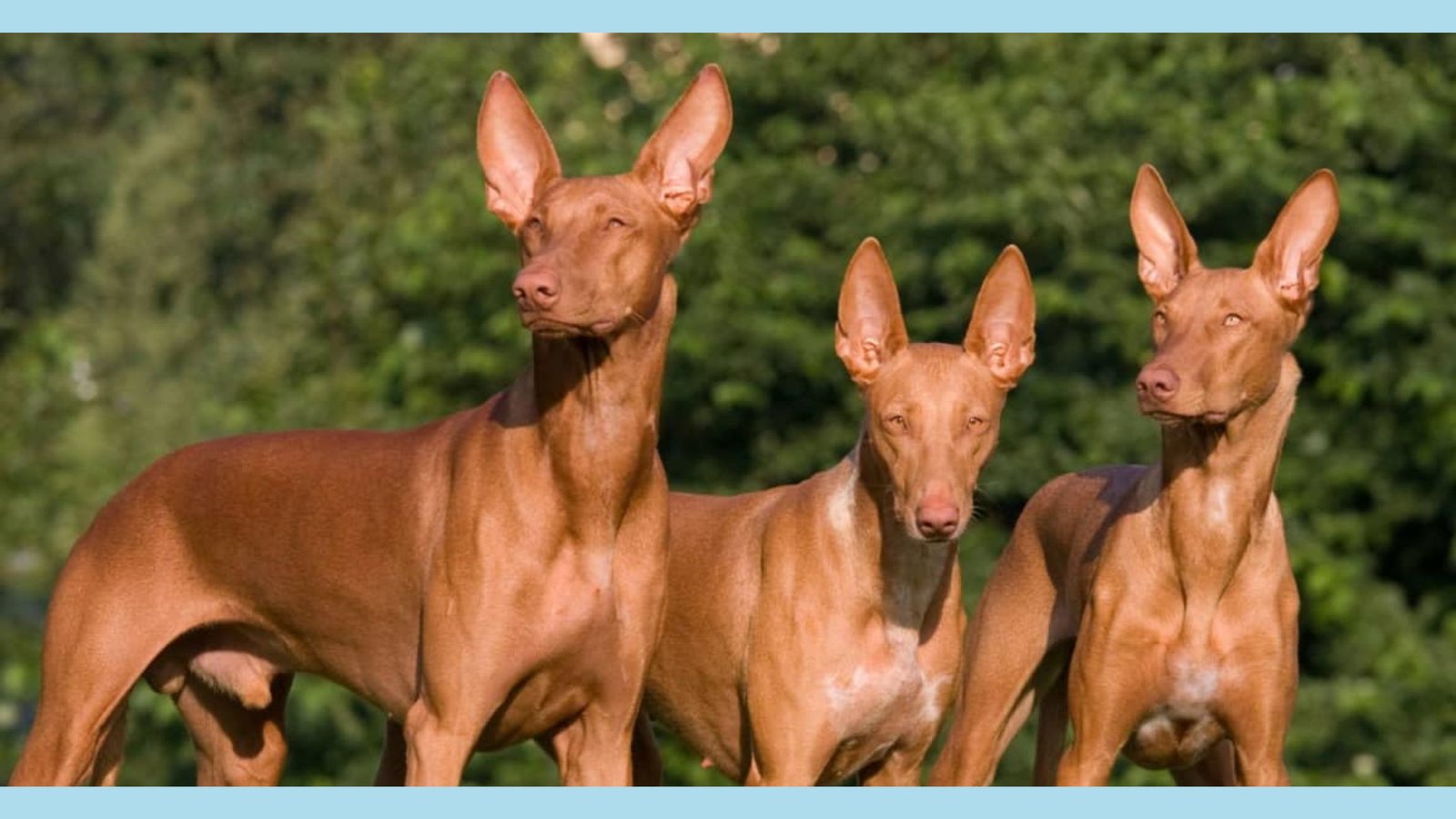
THE PHARAOH HOUND: AN ANCIENT LIVING HISTORY FOR THE EGYPTIAN DOGS
The pharaoh hound looks just like the dogs in ancient Egyptian art. Its regal appearance and graceful movements capture the spirit of ancient Egypt.
Pharaoh hounds are medium-sized dogs with lean, athletic builds. They have short, glossy coats in shades of tan to red. A distinctive feature is their “blush”, a rosy color on their ears and nose when excited or happy. These dogs are intelligent, loyal, and playful. They make great family pets but need regular exercise and mental stimulation to stay happy and healthy. These ancient Egyptian dogs have survived and evolved into the beloved native breeds we know today.
The Pharaoh Hound’s Long History
The pharaoh hound’s history stretches back thousands of years to ancient Egypt. Around 3,000 years ago, Phoenician traders likely brought them to the island of Malta. The ancient Egyptians highly valued these dogs and depicted them in artwork.
Ancient Egyptian art shows dogs that look like the pharaoh hound. These dogs have a lean, muscular body and a regal appearance. People think they were kept by pharaohs as companions and considered sacred.
In the early 1900s, the pharaoh hound almost went extinct. But dog lovers worked hard to save the breed. Today, it is still rare, but more people are getting these dogs.
Pharaoh Hound Characteristics
The pharaoh hound is smart and independent. They are loyal to their families and love attention. These dogs are playful and good with kids and other dogs (if trained). However, they may hunt small pets like cats or rabbits.
These active dogs need lots of exercise to stay happy and healthy. Long walks, runs, and yard play are great. They are agile and good at sports like lure coursing and obedience. Though energetic, pharaoh hounds are also calm and gentle. They don’t bark much or act aggressive.
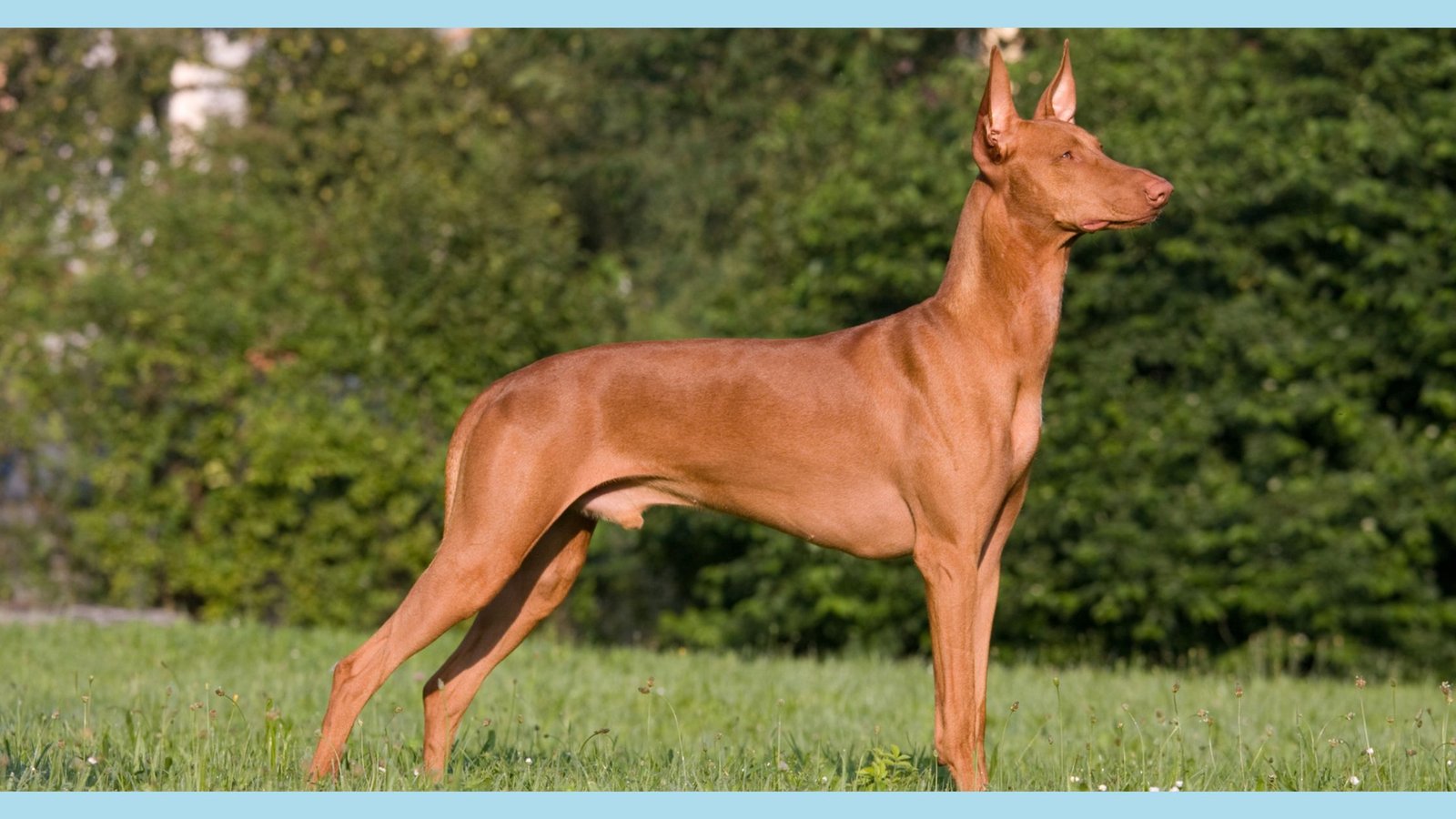
Grooming, Training, and Health for Pharaoh Hounds
The pharaoh hound has a short, shiny coat. It doesn’t need much grooming. Brush regularly to remove loose hair. Give occasional baths to keep the coat looking nice. Check their ears often. Clean them if needed to prevent infections. Brush teeth regularly and give dental chews to maintain good oral health.
Pharaoh hounds are smart and eager to please. This makes training easier. But they can be independent. Use patient, consistent training methods. Positive reinforcement works best – treats, praise, play. Never use harsh methods or punishment. This can cause fear or aggression.
Early socialization is very important for pharaoh hounds. Expose them to different people, animals, environments from a young age. This helps them grow into friendly, adaptable dogs.
Pharaoh hounds are generally healthy dogs. But like all dogs, they can get certain conditions. These include hip dysplasia, patellar luxation, and eye diseases. Regular vet check-ups, a balanced diet, and exercise are important. This helps maintain their health and well-being.
Grace Of Ancient Egypt
Meet the pharaoh hound, a regal dog that brings the elegance of ancient Egypt to modern times. With their majestic look, intelligence, and playful nature, they make great companions for active people and families.
Although quite rare, this breed is worth considering if you appreciate history and want a unique dog. Give them proper care, training, and socialization, and the pharaoh hound can be a loyal, loving addition to any family.

THE IBIZAN HOUND: AGILE AND VERSATILE
The Ibizan hound is another ancient Egyptian breed that has stood the test of time. Originally from the Mediterranean region including Egypt, this dog was used for hunting small game. Not as famous as the basenji or saluki, it’s still a remarkable breed.
Ibizan hounds are medium to large dogs with a slender, athletic build. They have short, smooth fur in various shades of red and white. Known for agility, speed, and endurance, they excel at hunting and dog sports like lure coursing. Despite their hunting instincts, Ibizan hounds are gentle, affectionate with families. Like any dog, they need regular exercise for mental and physical stimulation. Their high energy suits active individuals or families who can provide outlets for their energy. These ancient Egyptian dogs not only survived but evolved into beloved native breeds.
Physical Characteristics of Ibizan Hound
The Ibizan hound has a distinct slim and graceful build. Their head is long and narrow with a slightly curved skull and an elongated muzzle. The eyes are amber or caramel colored, giving them a gentle and intelligent look. One striking feature is their large, upright ears that stand tall and point forward.
These ears enhance their hearing and add to their unique, regal appearance. They have a well-muscled body and deep chest, providing agility and strength for hunting. Their legs are long and lean, allowing them to move quickly and smoothly.
Ibizan Hound Temperament and Training
Although skilled hunters, Ibizan hounds are gentle and affectionate with their families. They form strong bonds with owners and are loyal, protective companions.
These intelligent and eager-to-please dogs are relatively easy to train. However, their strong prey drive necessitates early socialization and consistent training to differentiate appropriate from inappropriate behavior.
Positive reinforcement like rewards-based training and praise work best. Harsh methods or punishment can lead to fear or aggression, so gentle, patient techniques are crucial.
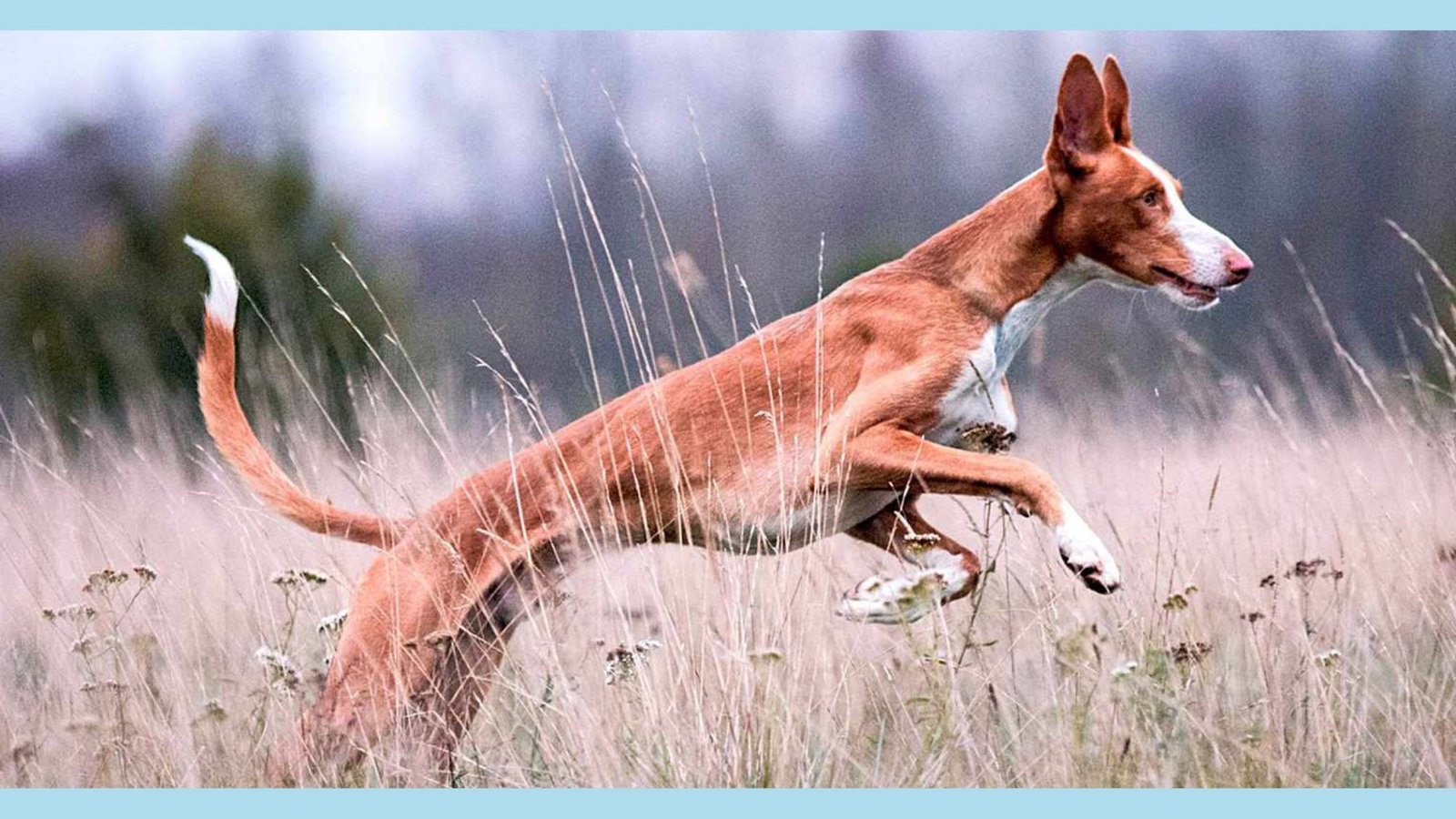
Fun Workouts for Ibizan Hounds
Ibizan hounds have tons of energy. They need lots of exercise to stay happy and healthy. These dogs love being active and exploring new places.
Long walks, jogging, or hiking are great for Ibizan hounds. They can burn off energy and discover new sights and smells. Dog sports like lure coursing, agility, and obedience trials are also perfect. These activities give them exercise and mental stimulation. Their natural instincts are put to good use.
Be careful with Ibizan hounds around small animals. They have a strong prey drive. Always keep them on a leash or in a fenced area. Their urge to chase critters is hard to resist.
Caring for Your Ibizan Hound
Ibizan hounds have short, smooth coats that are easy to groom. Brushing with a soft brush or grooming mitt keeps their fur clean and shiny. These dogs stay pretty clean and don’t have a strong doggy smell. Like all dogs, brush their teeth and take them for vet check-ups. Check their ears too for infections or wax buildup.
Ibizan hounds are generally healthy. But they can get hip dysplasia, eye problems like PRA, and certain cancers. Regular vet visits, a balanced diet, and exercise keep them in top shape. Good breeders test for health issues. This ensures their breeding dogs are healthy and disease-free.
The Ibizan hound is a skilled and agile dog. It has a long history going back to ancient Egypt. These dogs are great hunters but also make wonderful family pets. They are gentle and loving, doing well with lots of exercise, love, and mental activities. If you want an athletic, smart, and loyal dog, the Ibizan hound could be perfect.
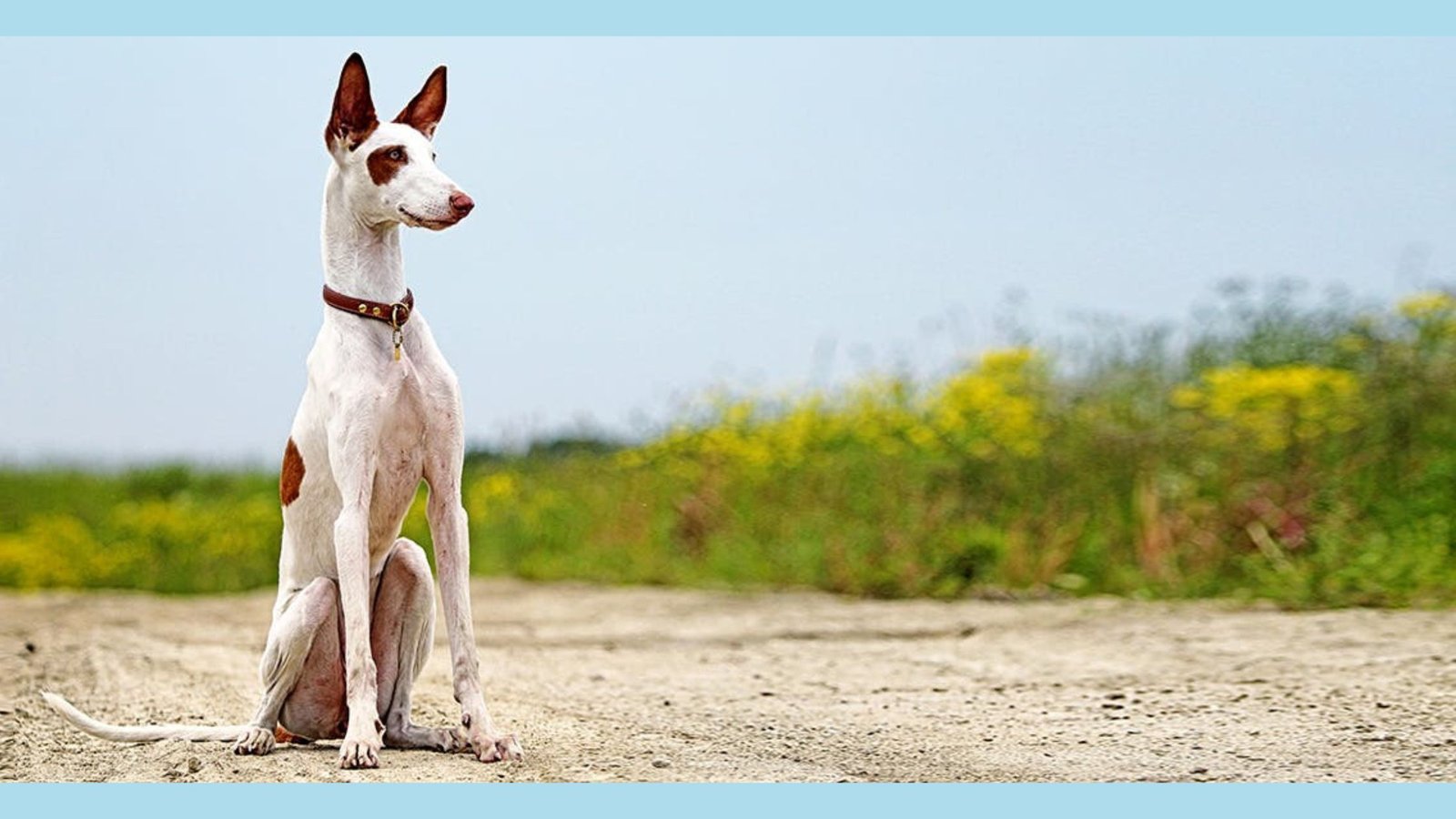
ANCIENT EGYPTIAN DOGS BEYOND EGYPT
These ancient Egyptian dog breeds are closely tied to Egypt. But their influence spread to nearby Middle Eastern, Mediterranean, and African countries. These places embraced and developed the original breeds, making them their own.
ancient Egyptian dogs loved by the world
For instance, the basenji is now popular worldwide. People love its unique sounds and independent nature. It’s intelligent and agile, making it great for dog sports. The saluki is also globally loved for its grace and beauty. Many enthusiasts take part in lure coursing events to show off its natural speed.
The pharaoh hound’s striking looks and playful personality have won fans across the world. Its loyalty and adaptability make it a versatile companion in many environments. Similarly, the Ibizan hound has gained recognition beyond Egypt. Its agility and endurance make it popular for lure coursing and other dog sports. It’s also valued as an affectionate, gentle family pet.
Keeping Alive the Heritage of ancient Egyptian dogs
These old Egyptian dogs have changed and adjusted to new environments. But people work hard to protect their special background. Dog lovers, breeders, and groups put effort into following breed rules, promoting good breeding practices, and teaching people about these great dogs.
Through their hard work, the legacy of these ancient Egyptian dogs lives on. Future generations can appreciate and enjoy the rich history and culture they represent.
A Quick Overview of ancient Egyptian dogs
The ancient Egyptian dogs like the basenji, saluki, pharaoh hound, and Ibizan hound have survived over time. They’ve become beloved pets and competitors across the world. Their unique traits, rich past, and cultural importance make them truly remarkable breeds.
In Egypt or elsewhere, these dogs captivate our hearts. They remind us of the lasting bond between humans and loyal canine friends. These ancient Egyptian dogs not only survived but evolved into the native Egyptian breeds we know and love today.
We recommend reading more on this topic at the World History Encyclopedia!









